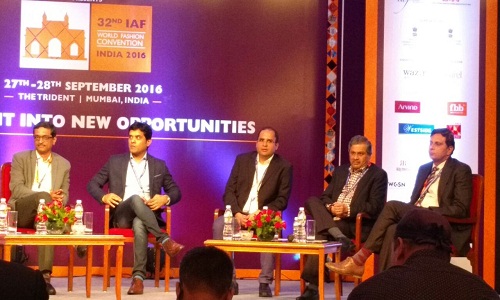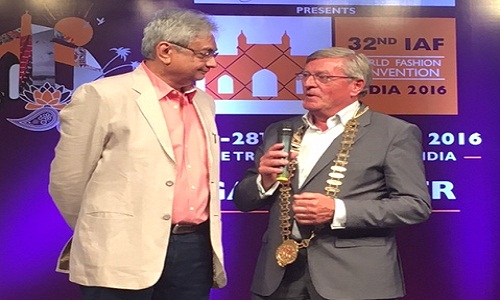FW
Factories in Vietnam that are a part of the Better Work program have better working conditions for employees are up to eight per cent more profitable than their counterparts. The Better Work program works to improve working conditions and promote competitiveness in global garment supply chains.
The average firm enrolled in the program, which focuses on preventing the use of insecure or unprotected contracts that leave workers in a precarious employment situation, increases its revenue to cost ratio by 25 per cent after four years of involvement.
The proportion of Better Work factories operating excessive overtime fell from 90 per cent at the outset to 50 per cent by the fifth year. Employees in Vietnam reported working 55 hours a week by the fifth year of their factory’s participation in Better Work, down four hours a week from the baseline.
Workers at Better Work factories in Vietnam have seen rising weekly pay (independent of the minimum wage) and are now less concerned with excessive overtime and poor wages than they were five years ago. Moreover some 15 per cent of garment factories covered by Better Work did not comply with minimum wage requirements at the beginning but this fell to just three per cent by their fifth year into the program.
Fashion-conscious consumers have changed their purchasing behaviour. Today, it is not only the look that matters but also comfort is important. The softness of the textile is an important parameter for comfortable clothing. In fact, softness is a basic pre-requisite for comfortable clothing. The softness has to be perceived by the wearer to trigger the decision to purchase the garment.
Austria-based Lenzing AG, whose main business is making textile and nonwovens, cellulose fibers and some polymer plastics, is presently demonstrating its innovative expertise and presenting a new method to measure softness of clothing along with German instrument manufacturers Emtec Electronic.
How people perceive softness is, something that differs from person-to-person and is determined by how the textile and the skin interact. To explain the complex process of softness in textiles and at the same time exclude personal preferences, physical measurement methods were developed to make softness ‘visible’. These methods are well known in the scientific world. However, they are highly complex.
A group, specially formed at Lenzing Research, devotes its research to physiological properties, searched for easier methods to measure softness. In the search for existing measuring methods to test softness, the team examined related industries and found an interesting instrument that appeared suitable to measure the softness of textiles.
The device is well-known in the paper towel industry and measures the softness of different products in this field. More than 100 fabrics were used for the test on Lenzing fibres to see whether this device can be used for textiles and following an intensive test phase, the team approached Emtec Electronic to share their results and arrange co-operation on further tests. Using the softness measuring device from Emtec Electronic and the well-known ring method, it is possible to show that the higher the amount of Lenzing Modal® used in the textile, the softer it becomes. The test result itself shows that MicroModal® is the softest fibre of all the fibres tested. The test method should quickly depict the degree of softness of fabrics with Lenzing Modal to help customers communicate softness at the time of sale.
In its bid to cut labour costs and secure its future, Japan's apparel industry is turning to state-of-the-art technology from ready-to-wear knits manufactured instantly to customised dresses produced on inkjet printers. At manufacturing giant Shima Seiki's factory in western Japan, garments materialise in minutes, thanks to digitally-programmed automated machines that can turn out a sample seam-free pullover in half an hour with a push of a button.
The WholeGarment system patented by the Japanese manufacturer and sold to knitwear companies like Italian luxury brand Max Mara includes a digital design system that allows users to choose patterns, colours and cuts. Originally known for glove-making machinery, Shima Seiki took a technological leap in the 1990s in an effort to revive the flagging fortunes of Japanese apparel manufacturers.
The WholeGarment system allows a worker to operate 10 machines thereby lowering labour costs and uses limited raw material to create lagu kokoronotomo versi Indonesian seam-free garments that generate no waste, since they require no cutting or sewing. After a slow start that saw around a dozen brands from Japan and Italy sign up in the first year, has some 800 companies using the same. Of these nearly half of them are Japanese who have jumped on board, contributing to Shima Seiki's 60 per cent share of the global market for knitting machines. The initiative is part of a push by Japan's knitwear industry to capitalise on its technical know-how to create garments that cannot be replicated elsewhere at a lower cost.
Oerlikon wants to prepare customers for the future of manmade fiber production. This will ultimately result in improved yarn quality environmentally-compatible and sustainable production processes. With the 4.0 system producers can maintain a constant overview of all processes – from the poly condensation, spinning and texturing all the way through to downstream further processing procedures. This helps clients increase the productivity of their systems, save energy and deploy resources efficiently.
The Oerlikon Manmade Fiber segment comprises two brands: Oerlikon Barmag and Oerlikon Neumag. With its many years of expertise in complex production systems engineering, Oerlikon Barmag focuses on continuous polymerization, pre oriented yarn, fully drawn yarn, industrial yarn as well as tape and monofilament products and services.
Oerlikon Neumag is the leading supplier of technologies and plants within the global staple fiber market. Customers benefit from the best technology and process solutions for their specific requirements – for high-quality fibers from a single source. For the nonwovens (spun bond, melt blown and air laid) sector, Oerlikon Neumag has the new, multifunctional forming table. The melt blown system is characterized by its considerably reduced footprint. The resulting shortened wire length reduces maintenance costs. It is horizontally movable, multiply-segmented and offers individually-adjustable suction boxes. This enables extremely flexible formation and hence increased product diversity.
Zimbabwe has scaled up input support for cotton farmers, with four lakh households expected to receive free inputs covering a hectare each. This is double last year's package and could translate to a yield of more than two lakh tons. Good rains are expected this season. However, production could be as low as 35,000 tons, the lowest since 1992. Farmers may get free inputs, but the appetite for growing cotton remains subdued due to poor prices.
So providing free inputs isn’t seen as enough. A price mechanism has to be devised that incorporates a pre-planting price and forward sales. In contrast, some major cotton producing countries in West Africa such as Burkina Faso, Cameron and Ivory Coast announce a pre-planting price.
A pre-plant price would help insulate farmers from low global prices. Increasing production of synthetic garments is giving stiff competition to cotton fabrics. Also, western countries, particularly the US, provide illegal subsidies not only in cotton, but in other agricultural commodities such as sugar.
Farm subsidies are an emotive issue. Richer nations see it as their right to look after their farmers' viability while emerging nations feel such action is unfair and perpetuates trade structures, which suppress competitiveness while at the same time perpetuating poverty in least developed countries whose economies are heavily dependent on global commodity prices.
As a part of its Cotton USA sourcing program, Cotton Council International (CCI), the export promotion arm of the National Cotton Council of America (NCC), hosted the Western Hemisphere uniform manufacturers tour to the US last week. The goal of the program was to expand business between US mills and the uniform industry, a key developing market for US yarn and fabrics, according to Vaughn Jordan, deputy director of CCI and director, Western Hemisphere, CCI.
Thirty-nine companies from the US and Latin America kicked off the event with a seminar and trade fair on September 20 before breaking up into groups to tour US textile manufacturers in five states viz North Carolina, South Carolina, Georgia, Louisiana and California. The tour is a signature event of the sourcing program which seeks to develop business relationships throughout the cotton textile and apparel chain with the objective of increasing exports of US-manufactured cotton products to the Western Hemisphere.
Participants included seven US uniform-buying companies, 13 US yarn and fabric mills and 19 uniform manufacturers from Colombia, the Dominican Republic, Guatemala, Honduras, Mexico, Nicaragua and Peru.
Perhaps for the first time Maharashtra may overtake Gujarat in terms of cotton production. Usually, Maharashtra produces around 60 to 70 lakh bales and around 20 lakh bales are sold to Gujarat. But this time, there could be a bumper production because of good rains.
Maharashtra’s cotton crop is expected to improve from 78 lakh bales in 2015-16 to 87 lakh bales in the current crop year. Gujarat may produce some 80 to 85 lakh bales. Incessant rains brought relief to the water-stressed Marathwada region, which had been suffering from drought for the past four years.
Total cotton supply for the crop season 2016-17 is estimated at 398 lakh bales, while domestic consumption is estimated at 309 lakh bales, thus leaving an available surplus of 89 lakh bales. Meanwhile cotton samples are being displayed to potential buyers in Bangladesh, Pakistan and Vietnam. A team visited Chinese buyers, traders, ginners, warehouses and provided samples of their cotton, which was tested by Chinese experts. This was followed by a visit by Chinese traders and ginners to farms.
China has been the biggest importer of cotton from India until now. The cotton season begins from October 1. However, because of the rains, there could be a delay of 15 to 20 days for the new arrivals to take place.
"The 32nd International Apparel Federation (IAF) convention in Mumbai took off yesterday with a welcome address by Rahul Mehta, IAF president and president of the Clothing Manufacturers’ Association of India (CMAI). In his welcome speech, Mehta spoke about the huge potential India has to increase its market share in global apparel trade. He spoke about how China has gradually reduced its focus on labour intensive industries including textiles and apparel throwing up huge opportunities for countries like India."

The 32nd International Apparel Federation (IAF) convention in Mumbai took off yesterday with a welcome address by Rahul Mehta, IAF president and president of the Clothing Manufacturers’ Association of India (CMAI). In his welcome speech, Mehta spoke about the huge potential India has to increase its market share in global apparel trade. He spoke about how China has gradually reduced its focus on labour intensive industries including textiles and apparel throwing up huge opportunities for countries like India.
India-China looks to stronger trade ties

And as part of consolidating its relationship further with the Chinese industry, Clothing Manufacturers ‘Association of India (CMAI) signed a Memorandum of Understanding (MoU) with China Chamber of Commerce for Import and Export of Textiles (CCCT) for extending co-operation with each other in new business and exchange of trade and data related co-operation for mutual benefit. The MoU was signed by Rahul Mehta, for CMAI and Jiang Hui Chairman, CCCT.
This MoU is expected to benefit both countries apparel sector in the long run. The two parties CMAI and CCCT look forward to promoting their mutual interests in expanding economics and trading relations. With this MoU, they could pursue the goal of promoting and expanding communication in the areas of promotion of trade and investment cooperation, exchange of ideas for developing the sector, promote participation in trade fairs being organised by either, support business partnership search for members as a match maker, trade delegations and training etc. As Mehta points out, “While organizing trade fairs, both of us would co-operate in associating new clients, visitors and associated supply chain participants to the forum for the benefit of the apparel trade.” Mehta adds “Among other objectives of this cooperation, we feel we may be able to sell our garments in China, as the cost of manufacturing is becoming expensive in there.”
Hui adds "This comes as a framework to regulate mutual cooperation and work to promote apparel business in our countries. We also look forward to importing more raw materials from India among other objectives. However, we don't see import of readymade garments going up significantly, as China for high end garments will continue to manufacture within the country and for low end, low priced garments we have arrangement with ASEAN countries.”
The opening session was followed by a detailed presentation on India’s textiles industry its future potential by Wazir Advisors. In his keynote address on India-EU Trade Relations: Future Perspectives. Francesco Marchi, Director General, Euratex said “The Indian government should start negotiations for the Free Trade Agreement with the European Union (EU) and the United Kingdom (UK) for the benefit of the Indian apparel sector. It is hard to imagine the success of the FTA without UK, post Brexit. UK continues to be textiles manufacturing hub contributing 29 per cent of the entire apparel trade in the EU. 22 per cent of India’s exports to the EU go through UK.”
Experts forecast India’s textiles industry will double in five years from the current $110 billion ($68 billion domestic and $42 billion exports) to $220 billion by 2021. Speaking on the occasion, Managing Director and CEO of Mafatlal Industries, Aniruddha Deshmukh said e-retailing was going to be the next growth opportunities in the Indian textiles and apparel sector in the next few years. Since metros are overcrowded with retailers with high overheads, there would be more retail business opportunities in Tier II, III cities. Companies have better opportunity of expansion though franchise route.
Highlighting India’s potential and growth prospects, Ashok G Rajani, Chairman, Apparel Export Promotion Council (AEPC) hoped India would reach its target of $30 billion in apparel exports over the next three years.
The two day IAF convention being held in Mumbai started yesterday. It is seeing the participation of 250 Indian brands and manufacturers and industry representatives from about 20 countries. Top industry stalwarts and biggest brands, companies and people associated with the apparel industry from across the globe are attending.
The theme of the convention ‘Insights into new opportunities’ was very clearly carried forward by all four sessions on day 1, with topics ranging from sourcing and supply chain management, to trade policy and from retailing in India to technology. The sessions highlighted free trade agreement between India and the EU, lower costs through better cooperation between buyers and suppliers, opportunities in countries in Africa and in Russia, the dizzying growth of the market in India and the disruptive power offered by robotics and computing technologies. Harminder Sahni, MD, Wazir Advisors, Knowledge Partners for the convention, while presenting the theme of the convention said, “World must see opportunities in the growing fashion business from $1.7 trillion in 2015 to $2.6 trillion by 2025.” He added, “The key growth drivers should be looked as: emerging economies, increasing consumption and innovations. But the opportunities are worth the challenges being faced. Expectations from suppliers are rising in sustainability, innovations, agility and price and quality.”

The members of the International Apparel Federation appointed Han Bekke (Chairman, MODINT, Netherlands) as the new President. He succeeds Rahul Mehta (Chairman CMAI, India) who has held this position since 2014. The decision was taken at the general assembly of IAF as a part of the ongoing 32nd IAF World Fashion Convention being held in Mumbai.
“I worked hard and tried my best, IAF is like a family, a brilliant team and it has been a mind blowing experience. I cannot find any better person than Han Bekke for the next President.” said Mehta while handing over charge. “I am honored and privileged to take over, I look forward to work with the new team,” said Bekke, the new president IAF.
The other industry leaders nominated to the board were-Ed Gribbin, President of Alvanon Inc (US), elected treasurer, Jiang Hui, Chairman of CCCT (Chinese Chamber of Commerce for Textiles and Clothing) elected a member of the Executive Committee, Faruque Hassan, Senior VP, BGMEA (Bangladesh) and Les Miller, CEO, American & Efird (US) as board members.
Bekke has a long career in Dutch and international fashion and textile industry and has held different leadership positions. Since 2013, he is chairman of the Dutch Trade Association for Fashion and (Interior) Textiles MODINT, a member of IAF. Bekke was secretary general of IAF between 2006-2014 and became its board member in 2014.
The IAF is the world’s leading federation for national clothing and textile associations from more than 40 countries, representing over 150,000 companies and over five million employees. Also, individual companies from industry and retail as well as suppliers to this industry and educational institutes can be a member of IAF.
Brazilian outfit Vicunha Textil would participate in the DenimsandJeans tradeshow at Dhaka in October. To be held from October 5 to 6, the tradeshow ranks among the most famous in the country. Confirming his company’s participation, Thomas Dislich, MD, Vicunha Textil for Europe and Asia, said that in view of the country’s strong potential in the clothing industry, his company’s primary focus was to boost business with Bangladesh. He further said that his company is very proud of flying the Brazilian flag in that country and is therefore continuing to underline its pioneering role on the global denim market.
Starting out in 2014 as a niche event, the tradeshow has become the industry’s most favourite get-together venue. The organisers of DenimsandJeans are continuing the successful concept with a total of 28 international companies and staying true to their philosophy of experimenting with new themes.
The theme of the sixth edition of the tradeshow is Vintage Recall. This gels well with the trend predictions from Vicunha of ‘Discovery of the Wild’ and ‘The Dreamers’ where the heritage of the past is expressed freely with a true multicultural spirit. Vicunha is a quality supplier with a high level of fashion expertise and all its products are made of 100 per cent BCI-Cotton (Better Cotton Initiative). The company has been distributing its products to Bangladesh since 2011 and can deliver directly from its warehouse in Colombo.
Since 2015 Vicunha also had its own sales and customer support office in Dhaka. The company will use this additional presence at the tradeshow to maintain direct contact with local clients and to develop its network within the country.













